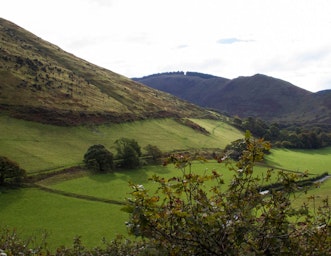
What next for councils who have declared a climate emergency?
March 24, 2021Home » What next for councils who have declared a climate emergency?
Around three-quarters of local authorities in the UK have already declared a climate emergency. CAT’s Anna Bullen and Anthony Hurford look at how to move beyond declarations towards effective action.
At CAT’s Zero Carbon Britain Hub and Innovation Lab we have contact with councils from across the UK on most days – councils that have declared a climate (and sometimes ecological) emergency and are now facedwith the all-important question: ‘What next?’
Different councils will ultimately need to implement different measures to address the climate emergency, depending on their size, locality, jurisdiction and responsibilities. We firmly believe, however, that if they have declared an emergency, then developing a climate action plan that sets out how they are going to address the emergency is the essential next step for all of them.
Planning for net zero
A climate action plan is crucial for many reasons: it sets out the measures needed to get to net zero by a target date; it represents a commitment to properly addressing the climate and ecological emergencies; and its creation provides an opportunity to bring communities together around a focal point.
Local authorities are in a unique position to facilitate and lead this process given their knowledge of and roles in local communities, but cannot be expected to have all the answers. Without widespread cooperation, any plan will be much more challenging to roll out in such a complex modern society and economy.
The creation of a plan in collaboration with diverse communities is an opportunity to design a future that works better for everyone, not just in relation to the climate and natural environment but the many other issues of fairness and opportunity that deeply affect people’s lives. This is recognised all the more as a result of the coronavirus pandemic. Such a process can itself mark the start of a new way of doing things, taking account of the different perspectives and knowledge people bring, and navigating difficult issues through engagement and increased understanding.
Of course, we are seeing significant variations between the climate action plans being produced, often reflective of varying council jurisdictions and resources. Some councils are producing their plans on low/no budget, largely drawing on the support of volunteers, whilst others are commissioning plans from consultants. However, it should be noted that a large budget does not necessarily lead to a better plan, especially as the key factor in achieving what it contains is likely to be the motivation of people to go above and beyond to support it. This is much more likely to happen if people feel that they were listened to and that the plan actually addresses their own needs and aspirations, so they have something to gain from it. Process is all-important here, so budgets and volunteer time should be spent wisely.
New local authority checklist
Climate Emergency UK, with input from CAT, Friends of the Earth and Ashden, have recently developed a Local Authority Climate Plan Checklist, which aims ‘to help local authorities draw up ambitious, comprehensive and robust Climate & Ecological Emergency Action Plans, and to enable community groups to assess the ambition of their own local authorities’ plans’. The checklist details the creation and presentation of a plan, the components of a strong plan, and the commitment, governance and funding required to deliver on it. It includes a chapter on specific actions that can be taken in different areas under council control or influence. Good practice is illustrated through case study examples and there is a list of resources that other local authorities have used which might be useful to others.
Keep an eye out for updates on our work at the Zero Carbon Britain Hub and Innovation Lab, including our new Zero Carbon Britain online resource hub, which is launching in spring 2021, and will be crammed full of filterable online content for inspiring, informing and enabling local action on the climate and ecological emergency.
Find out more
You can download the Local Authority Climate Plan Checklist at https://www.climateemergency.uk/local-authority-checklist/
To keep up to date with the work of the Zero Carbon Britain Hub and Innovation Lab, sign up to the CAT newsletter at cat.org.uk/sign-up
About the authors
Anna Bullen
Anna is CAT’s Zero Carbon Britain Innovation Lab Manager, working with a range of stakeholders to research, prototype and test climate solutions. She is an experienced and qualified facilitator and project manager, with 25 years’ experience in the sustainability sector, and is a firm believer in the use of co-creation methods in order to design effective and meaningful solutions to issues such as climate change.
She has a PhD in Sustainable Citizenship.
Anthony Hurford
Anthony is CAT’s Zero Carbon Britain Hub Project Manager, leading on the new online resource hub and supporting the Hub’s training programme and innovation labs. He has a background in managing large research and consultancy projects, and developing collaborative management approaches for complex environmental systems – the focus of his civil engineering PhD and post-doc research.
- Zero Carbon Britain
- Climate Change
- Policy
- News Feed
Related Topics
Email Sign Up
Keep up to date with all the latest activities, events and online resources by signing up to our emails and following us on social media. And if you'd like to get involved and support our work, we'd love to welcome you as a CAT member.



